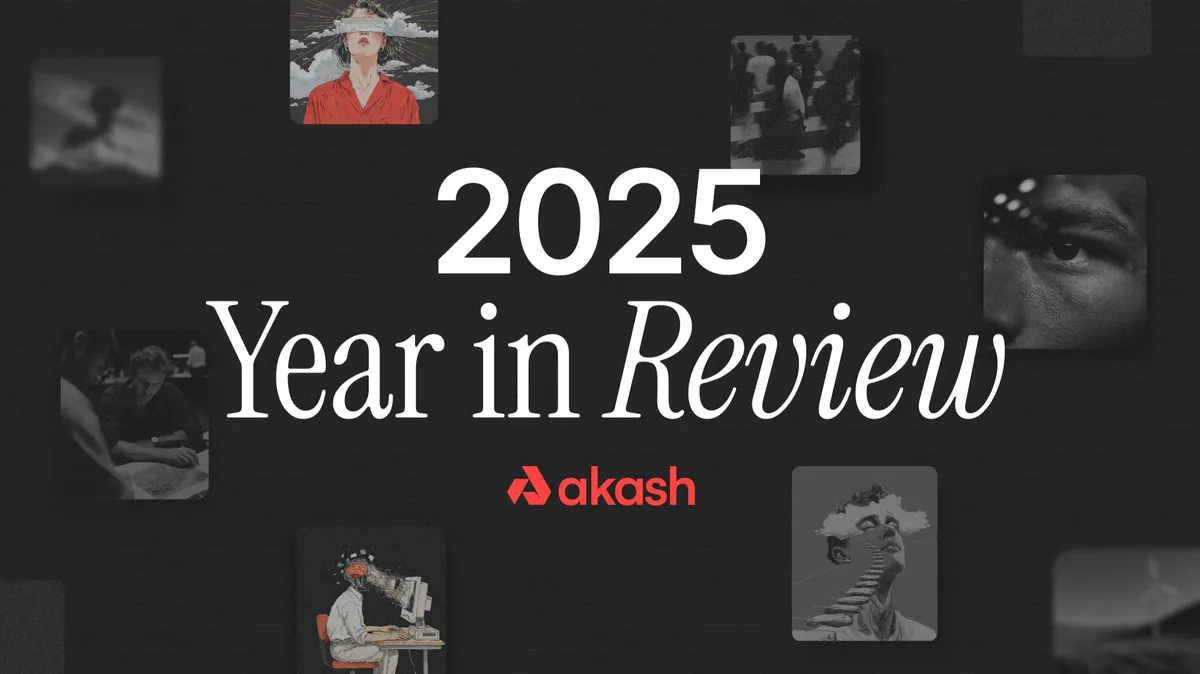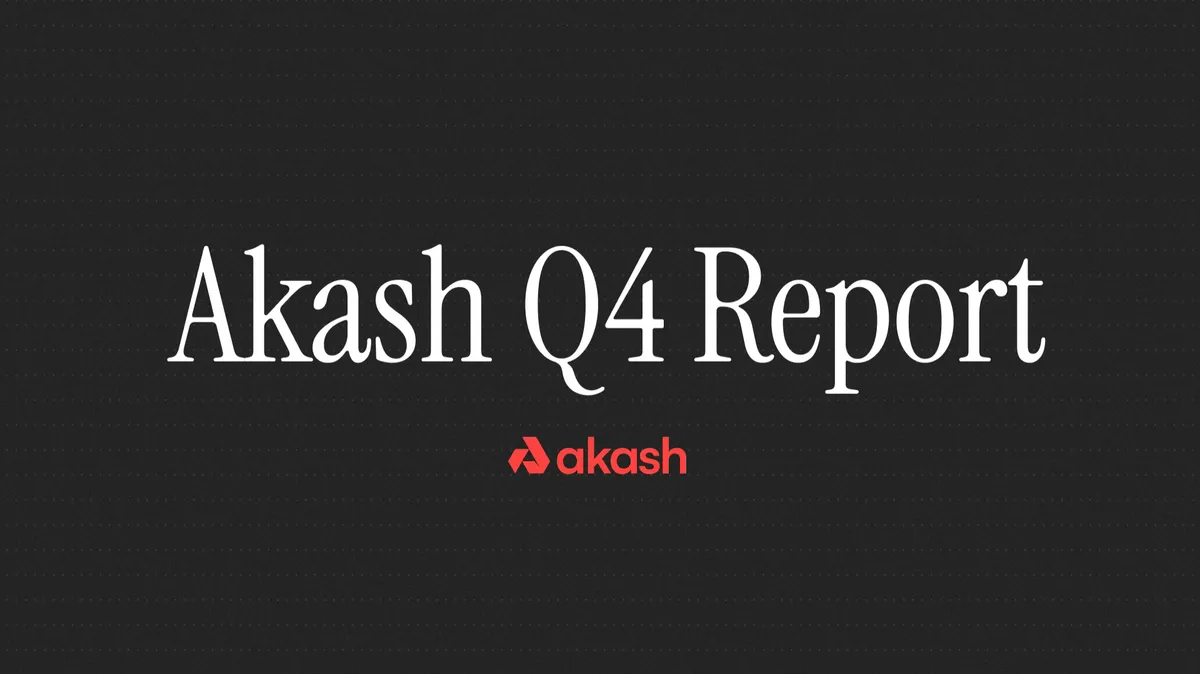
The battle of privacy vs. surveillance
There are battles happening between privacy and surveillance. Web3 creates many technologies that will enable privacy and thus is at the forefront of these debates.
- Many centralized entities in web3 have structural failures starting to surface.
- Consensys recently changed its privacy policy, allowing them to surveil transactions and collect IP addresses.
- Even though their intent is not malicious, exposing privacy in this way is fundamentally dangerous. There is always a risk of that info being exposed. Centralization comes with a certain set of risks.
- Web3 enables people to create code that cannot collect information.
- For example, Akash cannot collect IPs or impose censorship — as it is a public blockchain.
Overclock Console will provide easy access to web3
See what the Overclock Console UI looks like here.
With the upcoming public beta of Overclock Console almost here, web3 will have a way to access the decentralized cloud in a way that is easy, intuitive, and web-based.
- If you want to be among the first to use Overclock Console, join the Akash Community.
- The private beta is currently live, and the product is working well.
- “Decentralized tools are difficult to use” is a common complaint — but Overclock Console will help to mitigate these concerns.
Cloudmos launched a new Alerts-based Twitter bot
- With Cloudmos’ new Alerts tool, users can monitor wallet balances and governance alerts (including reminders to vote on proposals, and more).
- Using Alerts, Cloudmos built a Twitter bot that tracks major token movements across three chains: Akash Network, Cosmos, and Juno.
- Check out the details here.
Akash ecosystem updates
Luna continues building Akash’s Terraform Provider
Akash Insider Luna continues development on Akash’s Terraform Provider, which the Overclock Labs team also uses internally.
- This provider works well if you have existing investments in automation (80% of the cloud uses Terraform).
- This tool gives Akash the ability to plug into that ecosystem with minimal behavioral change.
- Greg Osuri (Founder & CEO of Overclock Labs) has already started contributing code to the Terraform provider on Github.
Moonbys is moving to Akash Network
Our guest this week: Web3 Working Group
Co-Executive Director, Web3 Working Group
Amy James is the Co-Executive Director of Web3 Working Group, a new 501(c)(3) nonprofit organization providing education about how web3 infrastructure will decentralize the web and permanently restore user control of cyberspace. She’s also the co-founder of Open Index Protocol, an index for all public information built with blockchain and other decentralized technology, and used by Caltech, Overstock subsidiary Medici Land Governance, the State of Wyoming, MENA’s largest independent news platform, Streambed Media & many others. Previously, she worked in nonprofit arts organizations, politics, and as an independent writer/director.
Web3 Working Group was featured in Fortune this week. Check out the article here.
An overview of Web3 Working Group
- The post-FTX landscape was the perfect time for Web3 Working Group to launch, as the need for clear communication and common sense regulation are needed now more than ever.
- Web3 Working Group’s mission is to educate people about web3.
- As we see many centralized entities in web3 collapsing, this only highlights the difference between web2 and web3 — and the unique structural risks of centralized companies.
- With a focus on educating the public about web3 infrastructure, the group will help people understand that web3 is a better solution to the problems we face today.
- Most of the focus has been on the financial services side of web3 up to this point.
- It is key that regulation accommodates web3 infrastructure needs, which are very different than regulations needed for financial services.
- We also need to support developers with the resources they need to build fully decentralized applications and make it easier to create cross-pollination between communities.
Understanding how regulation affects different sectors of web3
- Many people declare the need for regulations and rules. Still, many people aren’t sure how the regulation should be written.
- This is a critical juncture, and we must make sure that any new regulation considers the many different kinds of applications and types of infrastructure.
- Regulation should not only be focused on DeFi and NFTs.
- There is an entire sector of the industry that is focused on core infrastructure, and that part of the industry shouldn’t be regulated like a financial product.
- In doing so, we must ensure that there is a clear decoupling of finance and infrastructure — so that regulation can be drafted that will not cause unintended consequences.
Drafting intelligent regulation
- A company or protocol’s use case must be considered when future regulation is drafted.
- There needs to be space for machine-to-machine transactions, which might happen behind the scenes.
- Decentralized applications might not have a token connected to the application, but protocols might be used to transfer tokens behind the scenes. These protocols and token transfers must be allowed without onerous regulation.
- Unpredictable enforcement has held back the industry in many ways and has possibly hindered its development in the U.S.
- There is historical precedence for poorly-drafted regulations fundamentally altering the course of a country’s economic history. See: the Locomotive Acts (or Red Flag Acts) in the UK, which unintentionally shifted most automobile production to Germany.
The rise of web3 infrastructure
- Web3 infrastructure has the potential to impact the average person’s daily life much more than the financial services side of web3, given how current internet infrastructure support many of the apps and services we use every day.
- Web3 infrastructure allows the internet to fulfill its original vision as a fully decentralized network. Much of web2 was a diversion from this original vision and led to massive centralization.
- For many web2 companies, there are incentives in play that lead to outcomes that are not optimal for users — even if the people working at those companies have good intentions.
- Web3 is a revolution that is on par with the printing press. Understanding this sets the tone for how we should think about web3 as a new generation of the internet.
- “Infrastructure is the foundation of prosperity” — Amy James
Web3 is good for business
- We are reaching a point where we can make a case for the fundamental importance of web3.
- Web3 can no longer be regarded as trivial as more projects and protocols emerge and as Web2 companies begin adopting web3 technologies.
Listen to the final 30 minutes of the conversation (along with everything covered already) here.


